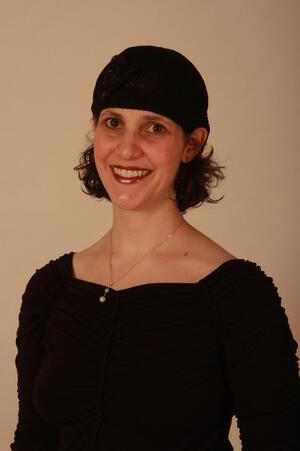The Rabba Revolution Continues
Three years ago this month, Rabba Sara Hurwitz made history in the Jewish world by becoming the first publicly ordained female rabbi in the Orthodox community. Since then, the 35-year-old mother of three has been working as Dean of Yeshivat Maharat, an institution dedicated to training women Orthodox clergy, as well as working as Rabba at the Hebrew Institute of Riverdale, which this June will graduate the first three women with the title of Maharat — an acronym for “Religious, spiritual, Torah leaders” — marking yet another important milestone for women in Orthodoxy. Rabba Hurwitz explained to "The Sisterhood" what this all means.
THE SISTERHOOD: What has changed for you over the past three years?
RABBA SARA HURWITZ: The biggest change is the flourishing of Yeshivat Maharat, and the continuation of Orthodox women serving in communities. The graduation of the first three students this coming June fills me a tremendous amount of excitement and gratification. I have students currently working in synagogues, one in a school, one in a JCC and one in a Hillel. That’s real movement.
What kind of feedback have you received from the Orthodox community?
I think there has been noticeable change since I received my title. I’ve been doing a fair amount of traveling around the country and I think Orthodox communities are much more open to seeing women as spiritual leaders. In fact they are beginning to want it, to request it, which I think is a real shift.
Part of the ability of women to lead relies on rabbis who have the courage to hire women as interns and graduates. I’ve been seeing a shift in the number of rabbis who recognize the importance of having women and who are eager to have women. I’m really grateful for these rabbis who are helping women carve out positions as leaders in the community.
If you like this post, you'll love:
What is attractive about having women clergy?
It’s about recognizing that communities are made up of both men and women, and sometimes people prefer to turn to other women for certain issues. Women bring a certain kind of scholarship and perspective, and people have come to realize that these women have tremendous capacity to lead and serve. Plus, when there is a presence of female clergy, the women of the communities often become more engaged in Jewish life. I get this feedback a lot anecdotally, where people tell me that shul feels more like a place where they want to be when women are active participants — not just observers. Knowing that a woman’s voice will be heard in various capacities, including teaching, leading tefillah and saying kaddish, makes shul less one dimensional and one sided.
>>> Read the rest of the interview on The Sisterhood
To see video clips of an interview with Sara Hurwitz, click here.






